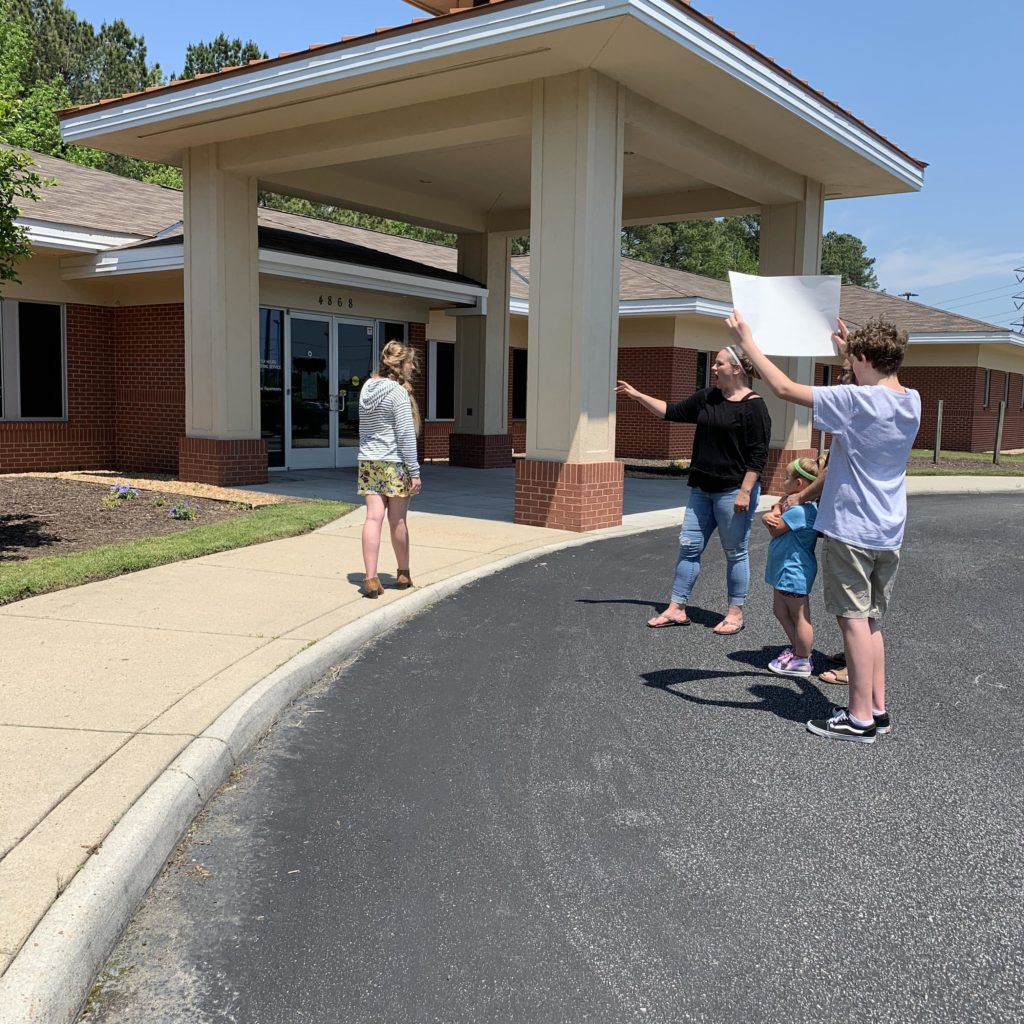Can federal courts rewrite state laws? Does the city of Pittsburgh’s fifteen-foot buffer-zone ordinance violate the Constitution’s Free Speech Clause? The Supreme Court of the United States has been asked to consider these issues in Bruni v. City of Pittsburgh.
Niki Bruni and other pro-life advocates are sidewalk counselors who stood outside of a Planned Parenthood facility in Pittsburgh. They engaged in quiet, one-on-one conversations with women who were visiting the clinic, offering the women prayer, personal support, and information about abortion alternatives. The City of Pittsburgh adopted an ordinance in 2005 that prohibited people from “knowingly congregat[ing], patrol[ing], picket[ing] or demonstart[ing] in a zone extending 15 feet from any entrance to the hospital and or healthcare facility.” Under this ordinance, the City marked buffer-zones outside of two abortion clinics, choosing not to implement the ordinance’s speech restrictions anywhere else in the city. In these buffer-zones, any form of conversation except sidewalk counseling is allowed. Therefore, Bruni and the other pro-life advocates filed suit in 2014, arguing that the City’s buffer-zone ordinance violated their right to free speech.
After many legal proceedings, the pro-life advocates appealed for the second time to the U.S. Court of Appeals for the Third Circuit. The National Legal Foundation, in conjunction with the Pacific Justice Institute and Concerned Women for America, filed a friend-of-the-courtbrief in support of Bruni and the other advocates. The brief argued that the Pittsburgh ordinance was content-discriminatory under two Supreme Court decisions—Reed v. Town of Gilbert and McCullen v. Coakley—and was therefore unconstitutional under the Free Speech Clause.
The Third Circuit’s decision added to a “circuit split,” which now stands at seven circuits to three, over whether federal courts have the authority to limit state laws in order to avoid constitutional flaws. The court held that the rewritten ordinance prohibited prayer or generic advocacy but allowed counseling. It was therefore content-neutral, and the burden on speech was insignificant. This was a partial victory for both sides. Since the pro-life advocates lost on some of their arguments, they petitioned the Supreme Court, arguing that federal courts do not have the authority to save a state or local law from unconstitutionality by rewriting that law. Unless the Supreme Court intervenes, lower courts will be able to continue to apply different rules to pro-life sidewalk advocates and excuse burdens on pro-life speech.
The National Legal Foundation, again in conjunction with the Pacific Justice Institute and Concerned Women for America, filed a friend-of-the-court brief in support of the pro-life advocates’ petition. We made three arguments in the brief.
First, we argued that the Third Circuit Court’s “saving” actions are unsatisfactory. The City of Pittsburgh has actively adopted an interpretation of its ordinance. The court’s judgment, however, embraced a different interpretation and thereby held the ordinance constitutional. The court’s decision that the City misread its own ordinance does not “save” Pittsburgh’s actions. The “saving” interpretations of the court are strained and produced a decision that is unsatisfactory to both parties. Furthermore, the Supreme Court has never adopted a limiting construction of a state or local law when the state itself has not offered such a construction. The Third Circuit had no authority to do so in this case.
Second, our brief argued that the Supreme Court should accept the petition so that the Court can clarify its content-neutrality precedent. In recent cases, the Supreme Court has redefined its content-neutrality analysis, since its prior bubble zone case, Hill v. Colorado. The Third Circuit’s misapplication of these redefinitions, demonstrate the need for the Supreme Court to clarify its content-neutrality precedent. The pro-life advocates are motivated by their religious beliefs, but the Court has established that the content-based discrimination against free speech and assembly should receive the same safeguarding from government interference as religious exercise does.
Third, we argued that the Third Circuit contradicted itself in its decision. The court rejected the City’s reading and application of its ordinance and found no violation as applied. Yet, concerning the facial challenge, the court expressed “deference” to the city and its stated goals. The court did not base its decision on the City’s implementation and interpretation of the law. It chose to use its own. Regardless of the court’s analysis, however, the City’s ordinance is overbroad because it has failed to put forth a reason why other of its ordinances is not sufficient to address any concerns about access to abortion clinics.
Although the motivation for the pro-life advocates’ exercise of their freedoms happens to be one of the most controversial issues of our day, speech about abortion is still speech, assembly to discuss abortion is still assembly, and the exercise of religion when involving abortion is still the exercise of religion. The Third Circuit did not have the authority to rewrite the ordinance in order to avoid this fact. Bruni v. City of Pittsburgh brings big issues to the table. This is a consequential judicial decision concerning Americans’ freedom to exercise their fundamental rights. That is why we supported the petition of the pro-life advocates in our friend-of-the-court brief.
Rachel McCracken
